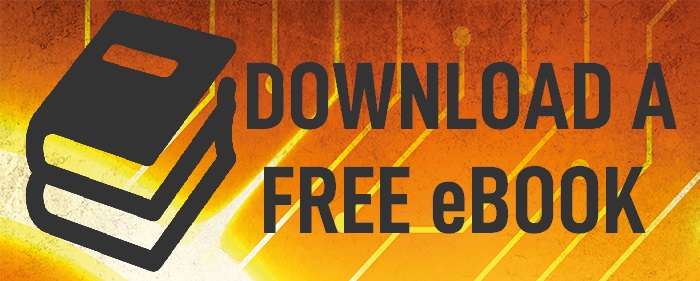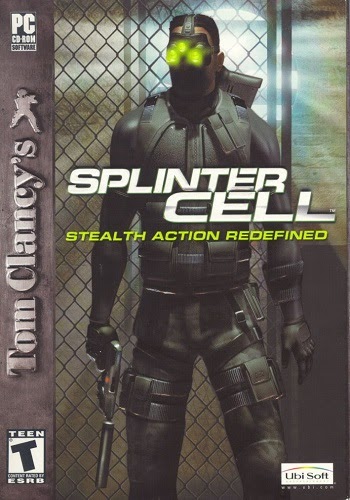
This, the first of my irregular TTH blogs for 2023, may come off as a little self-serving, as I’ll be looking over a series of novels that I’ve written for – and not so coincidentally, one that has a new release in the UK this month! I apologize for nothing! I’m as much a fan of these books as I am a contributor – an action packed series of “operator thrillers” based on a blockbuster video game franchise, endorsed by none other than that technothriller titan, Tom Clancy himself…
Published by Ubisoft in 2002, the first Splinter Cell video game was the second original project under the “Tom Clancy’s” banner following the previous year’s Ghost Recon, building out the franchise from titles based directly on Clancy’s fiction. Set in what was then the near future of 2004, the titular Splinter Cell is grizzled covert operative Sam Fisher (voiced by the iconic Michael Ironside), a former US Navy SEAL recruited to become a lone wolf agent for Third Echelon (later evolving into Fourth Echelon) – a secret program created by America’s National Security Agency to conduct covert intelligence-gathering missions in hostile territory, and to seek out, engage and destroy hi-tech threats to global security.
Splinter Cell helped define the “stealth-shooter” genre of games, and over the next decade the series became a firm favourite with gamers, followed by sequels Pandora Tomorrow (2004), Chaos Theory (2005), Essentials and Double Agent (both 2006), Conviction (2010), and Blacklist (2013). Sam Fisher would also make appearances in several other games and two comics miniseries (Echoes and Digging in the Ashes) – but this is a blog about thriller novels, so it’s the prose spin-offs that we’re looking at here…
Berkley Books published the first tie-in novels under the house pseudonym ‘David Michaels’ (along with other fiction based on games from the Tom Clancy’s banner like Ghost Recon, EndWar and HAWX), starting in 2004 with Splinter Cell.

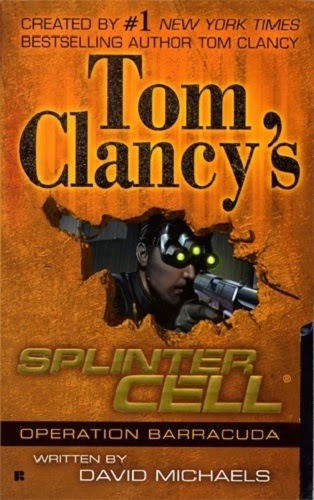
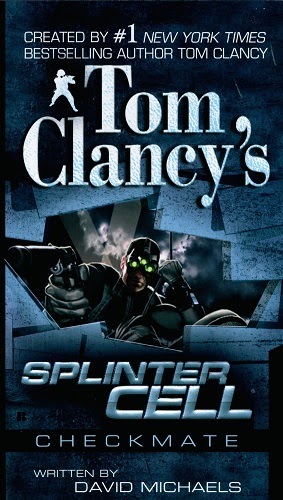
Like all of the novels to date, this was an original story spinning off from the established continuity of the games; in it, Fisher faces The Shadows, a terrorist cadre in league with The Shop, international arms dealers who are targeting Third Echelon personnel for assassination.
Splinter Cell the novel was a hit for Berkley, posting on both the New York Times and Wall Street Journal’s bestseller lists, followed a year later by Operation Barracuda, which mirrored the success of its predecessor. In the second book, Fisher goes after The Shop, ultimately uncovering a deadly plan to trigger a nuclear device off the US coast. Written in the first-person to emulate the perspective of players in the Splinter Cell video games, the first two novels were penned by Raymond Benson, an author known for his work on James Bond fiction in the late 1990’s/early 2000’s. Benson’s other work adapting game-worlds to prose covered franchises like Homefront and Hitman – and notably Metal Gear Solid, a popular series of Japanese stealth-shooter games to which the Splinter Cell titles were seen as the Western equivalent.
Benson left the series with the third book, as Grant Blackwood took over behind the house name for the next two Splinter Cell novels. Blackwood, an experienced thriller writer known for collaborations with Tom Clancy, Clive Cussler and James Rollins, dropped Benson’s first-person perspective for 2006’s Checkmate as well as plot threads set up in the previous books. Instead, the third novel concentrates on new antagonists as Fisher races to intercept a cargo ship loaded with radioactive material before it can be used against the United States. Blackwood continued a year later with Fallout, which introduced a revenge plot based around Fisher’s adoptive brother, a coup in the nation of Kyrgyzstan and a plot to destroy global oil resources.
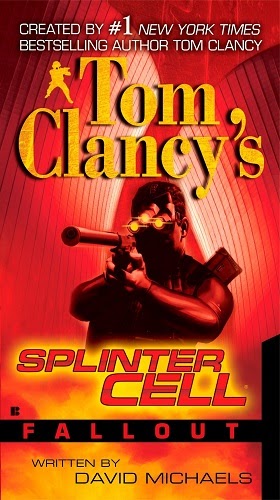
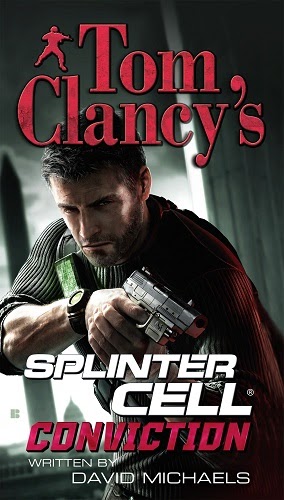
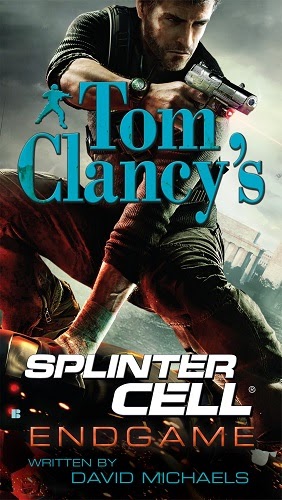
With Splinter Cell: Conviction, the fifth game in the series, planned to be released in 2010, Ubisoft and Berkeley engaged more closely, presenting novels that dovetailed with the narrative of the new game rather than being purely stand-alone tales. And in 2009, another new writer came in under the ‘Michaels’ pseudonym, this time Peter Telep, an experienced tie-in novelist with a thriller pedigree (having penned the Force 5 Recon, Armored Corps and Night Angel 9 series, among others).
Telep’s first Splinter Cell novel, also titled Conviction, was released a few months before the game, acting as a prequel to its narrative where Fisher is cast as a rogue agent out on his own and is no longer a part of Third Echelon. In the novel, Fisher is being hunted by a new team of Splinter Cell operatives, and their perspective on these events is presented in Telep’s next book Endgame, which was released shortly after.
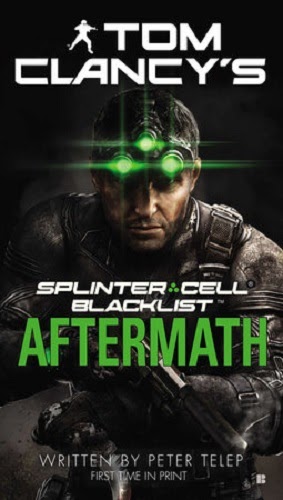
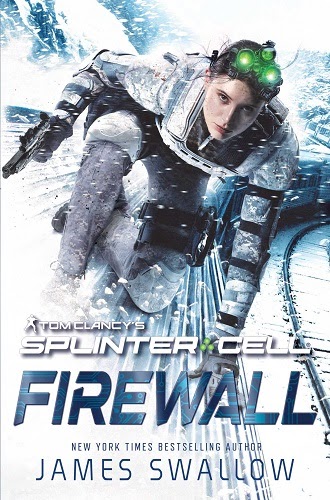
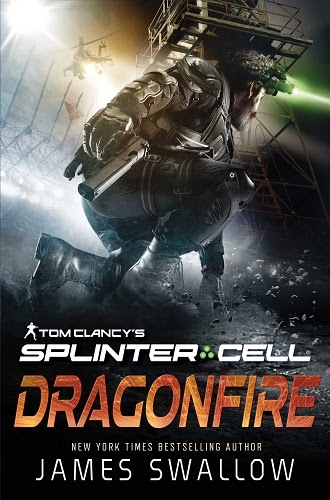
There would be a three year gap until Sam Fisher returned in the video game Splinter Cell: Blacklist, which rebooted the franchise with Eric Johnson taking over the role as a younger iteration of the series’ protagonist. Published several months after Blacklist’s release, Telep returned for the tie-in novel Blacklist: Aftermath, which followed up the events of the game with Fisher and the new Fourth Echelon agency racing to track down a Russian computer genius being forced to create an unstoppable virus program.
Aftermath was the first Splinter Cell novel to drop the ‘Michaels’ pseudonym, and the last to be published by Berkley Books’ parent company Penguin. With no new Splinter Cell games on the horizon and only guest-starring appearances for Sam Fisher in other titles like Ghost Recon and Rainbow Six, the franchise laid fallow until the early 2020’s when hints of a new iteration began to bubble up.
In the interim, publisher Aconyte Books began producing tie-in fiction based on several Ubisoft games, including Assassin’s Creed, Watch Dogs and another Tom Clancy’s title, The Division. Their association also returned the Splinter Cell to prose in 2022 with the eighth novel in the series, Firewall, written by…me!
Set several years after the events of Blacklist, Firewall has Fisher forced to work alongside his estranged daughter Sarah as he faces off against an assassin from his past, in the search for a powerful cyberwarfare technology on sale to the highest bidder. Firewall was the first Splinter Cell novel also to be released in audiobook, and in late 2022, it was adapted into a full-cast audio drama series for BBC Radio 4. This year, I’ve followed up Firewall with Dragonfire, in which Fisher is disavowed and left for dead deep inside North Korea, while Sarah desperately works to assemble an off-the-books mission to rescue him before it is too late.
What I enjoy about these novels is how all the different writers who’ve taken on Sam Fisher tap into the essential elements of the character – the cold-eyed lone wolf, the wry veteran with nerves of steel and a set of high-tech kit, the one man on a mission against impossible odds. Playing as Sam in the games is a lot of fun, and reading him is just as good. If you play the games, the books are a must-read – and if you don’t, they’re a great addition to the “Clancyverse” for anyone who enjoys some fast-paced technothrills.
I stated up front that I’m a fan of the Splinter Cell saga, and so I’ve done my best not only to hold to the lore of the games but also to give a nod back to the work of Benson, Blackwood and Telep in the earlier novels. Click on the titles to read about my novels in the Splinter Cell series, Firewall and Dragonfire.
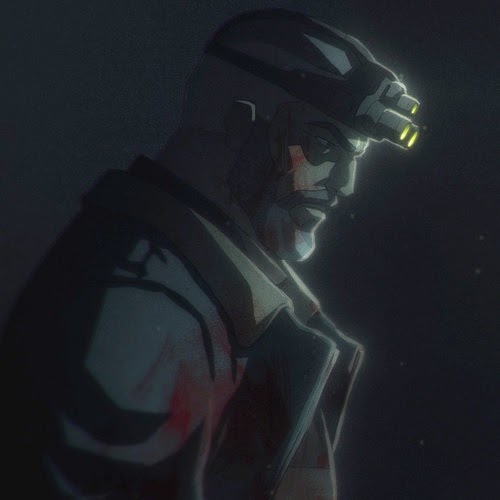
But what does the future hold for Sam Fisher and the Splinter Cell program? A remake of the original Splinter Cell game is currently being developed at Ubisoft’s Toronto studio, and an animated series (see above) is in the works at Netflix, with John Wick writer Derek Kolstad in the driving seat.
And as for more novels; there’s certainly more stories about Sam Fisher yet to be told…
